Energy-bereft world in darkness
Sanctions against Russian energy, high cost fuel, heat waves and droughts all at once have raised the price of daily energy use to unprecedented levels and plunged large parts of the world into darkness.
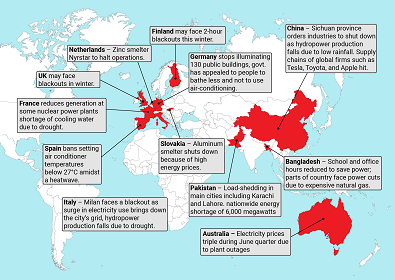 Courtesy: Getty Images
Courtesy: Getty Images
Sanctions against Russian energy, high cost fuel, heat waves and droughts all at once have raised the price of daily energy use to unprecedented levels and plunged large parts of the world into darkness.
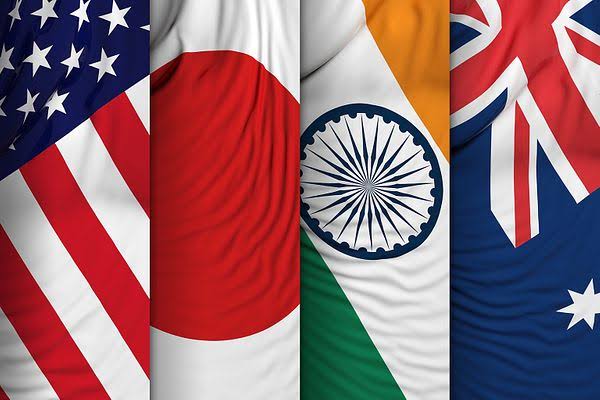 Courtesy: TIME Magazine
Courtesy: TIME Magazine
After its fourth summit on May 24, the Quad has emerged stronger and clearer in its initiatives which are aimed at addressing the Indo-Pacific’s geopolitical challenges. India now has a chance to work with like-minded democracies on an equal footing, with much to contribute. The Quad’s strategy for the Indo-Pacific is to deepen internalised cooperation for continued peace, prosperity, and stability.
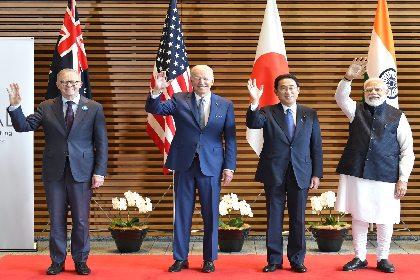 Courtesy: Twitter- Narendra Modi
Courtesy: Twitter- Narendra Modi
A serious stocktaking is expected at the Quad Leaders' Summit in Tokyo, to measure the progress of its wide-ranging list and proposals. In addition to vaccine partnerships, climate change, and connectivity, the Quad must now craft a common strategy for and expedite cooperation in, the economy, higher education, industry, and technology. It will also project unity in the Indo-Pacific region.
With mass digitisation, India has proved that technology is not just for the educated, privileged, and wealthy. The country's open and secure digital public platforms can be significant for the Indo-Pacific, the world's most data-rich region. The Indian model is applicable because it is open-source, interoperable, auditable, and enshrines individual rights, ownership, and empowerment.
 Courtesy: Gateway House
Courtesy: Gateway House
The signing of the Economic Cooperation and Trade Agreement between India and Australia in April, shows how well Australia has understood its new economic partner. In this special podcast, Lisa Singh, CEO, Australia-India Institute, and Manjeet Kripalani, Executive Director, Gateway House, have a wide ranging discussion on areas of strategic cooperation from trade, digital governance, connectivity and maritime security, to multilateral engagement in G20 and the Quad.
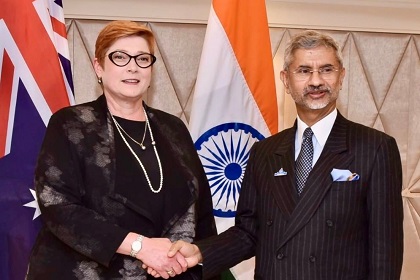 Courtesy: Australian High Commission
Courtesy: Australian High Commission
New global economic, military and political alliances are taking shape, and call for like-minded nations to calibrate their strategic, long term interests. The new India-Australia economic trade agreement is reflective of this. It also folds in a critical element: wide cooperation in cyber security, which now impacts the economy, democratic institutions and warfare. India has much to learn from Australia’s low key but smart cyber expertise.
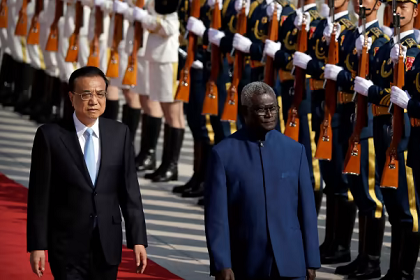 Courtesy: Financial Times
Courtesy: Financial Times
China has established a dominant presence in the Indo-Pacific through exploitative economic engagements. This has destabilised smaller nations in the region and made them dependent on Chinese support. For a free and open Indo-Pacific, India must press its advantage in human and economic capacity building.
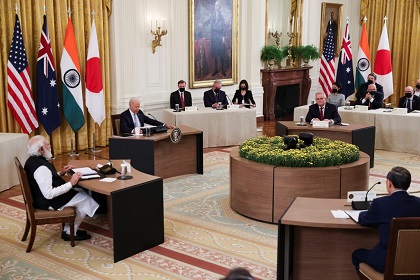 Courtesy: Atlantic Council
Courtesy: Atlantic Council
The Sino-U.S. contestation is a central tenet of the Indo-Pacific. In this power tussle, the EU strategy for the region provides a new way to engage with partners in the "Third Space" for a free, open, and inclusive Indo-Pacific.
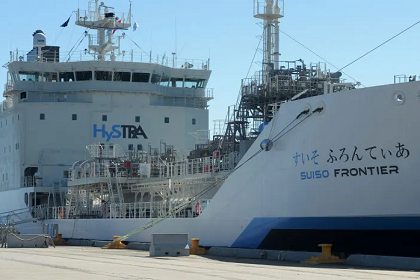 Courtesy: TIME
Courtesy: TIME
Last month, the Government of India released its Green Hydrogen Policy with the goal of boosting energy self-reliance and inspiring clean energy transitions. The time is right for the Indo-Pacific economies to finance green hydrogen projects and integrate them into supply chains.
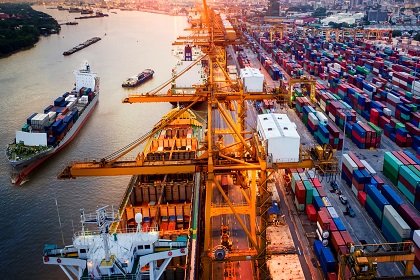 Courtesy: Shutterstock
Courtesy: Shutterstock
Concerns of global supply chains being overdependent on China has shifted the focus to India. This became clear in 2021 when Australia, Japan and India together launched the Resilient Supply Chain Initiative. India must now leverage its unique position in the Indo-Pacific region by incorporating well-planned industrial clusters and models.